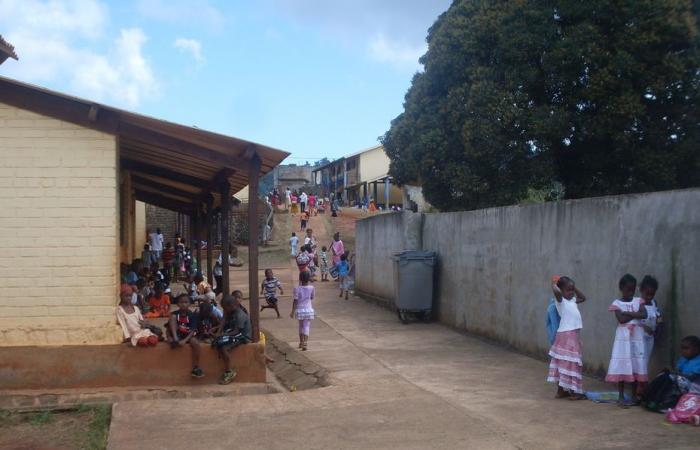In a note on schooling in overseas territories published on October 31, the Jean Jaurès foundation warns of the disparities in access to education in several overseas territories and places emphasis on Guyana and Mayotte.
“Is access to school the same throughout France?” This is the question that the co-authors of a note from the Jean Jaurès Foundation on schooling in overseas territories tried to answer. “We wanted to highlight themes that are not addressed enough on a national scale, informs Jeanne Belanyi, co-author of the note. We had spotted a report from the general inspectorate which recommended massively closing classes and we wanted to remind people that in the Overseas Territories, there were significant disparities in access to education. To carry out their intentions, the authors carried out an in-depth study and focused mainly on Guyana and Mayotte.
These two territories suffer from deficiencies in access to education and links must also be made with the provision of hospital care, which directly impacts children, but also school transport. These two territories have particularities in access to education, so we had to highlight them.
“In 2020, the share of children aged 3 to 16 years old who are not in school amounts to 7% in Guyana, or 6,207 children,” according to the report. This is twice as much as in mainland France. To explain this disparity, the rapporteurs recall in particular that “non-schooling is more marked in non-road Guyana“This week, because of the drought which makes the rivers impassable, children had to be taken to class by army helicopters.
Financial and family issues are also advanced. Indeed, according to the foundation, “non-schooling more often concerns children living in a single-parent family (8%) than those living in a couple family (6%)”.
According to this study, population growth in Guyana and Mayotte is so rapid that education infrastructure is not keeping up. The territories are facing a situation of school overpopulation. Several factors are put forward to try to explain this demographic growth: the co-authors cite both the increase in the number of women of childbearing age and early pregnancies. “15% of young people out of school in Guyana are there following pregnancy or starting a relationship. reports the note.
In Guyana, school enrollment has increased by nearly 16% in ten years. “We know that the birth rate in these territories is increasing. We know that the population will double by 2050, so the needs are major. […] We need to build more schools and give communities more resources to meet the needs of the population. We also need roads to respond to opening up“, notes Jeanne Belanyi. In Mayotte, the problem of school overpopulation is the same. There, the school numbers represent “35 to 40%” of the population according to her, “compared to a national average of 18%”. “There is the same problem of foreign children who have difficulty accessing school, because in administrative matters there have been certain difficulties which have been pointed out by associations“, underlines the co-author.
The Jean Jaurès Foundation observes that the out-of-school rates are underestimated in overseas territories at nursery and high school levels, but this is where the cases are the most critical in terms of school drop-outs. Since 2019, schooling for children from the age of three has been compulsory, but in Guyana and Mayotte, this obligation is difficult to apply, in particular because of the “saturation of existing schools”. “From the start of their schooling, three-year-old children are already excluded”notes Jeanne Belanyi. The co-authors also reveal that in Mayotte, “before the law came into force, the proportion of children aged three to five not in school reached the highest level of all French departments.
The authors also warn of dropping out of school after college. “At the end of middle school, there is a dropout rate which is higher than in France”says Jeanne Belanyi. In Guyana, nearly 4% of middle school students leave the school system after third grade, “three more than in mainland France“. “We need to place more emphasis on the transition to high school. We must give students avenues for professionalization, we must interest them in the professions of the future“, she insists. In conclusion of this note, the co-authors hope that future decisions taken by governments will be more equitable and take better account of the specificities of Overseas Territories.






